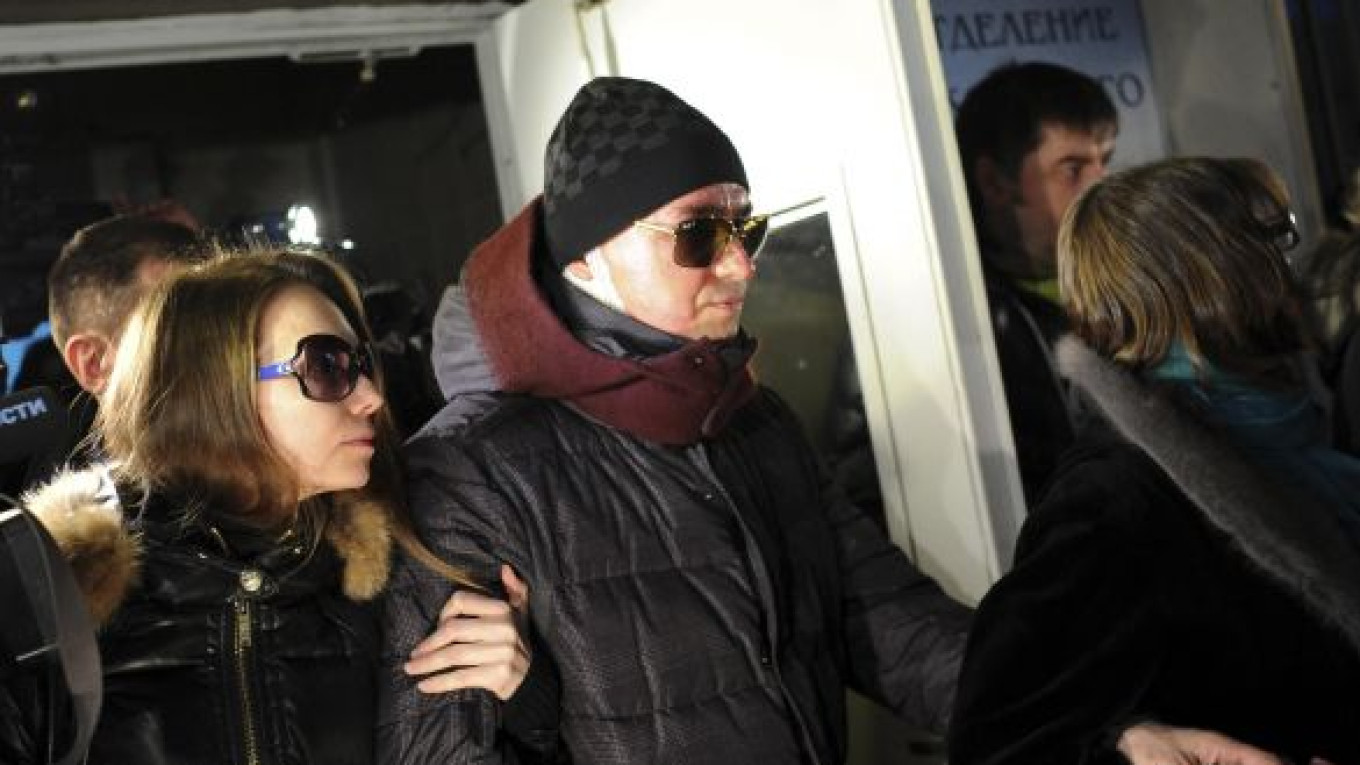The artistic director of the Bolshoi Ballet said he knows who ordered an acid attack that left him with severe burns to his eyes and face but won't say, voicing hope that investigators will soon name the perpetrator.
Sergei Filin checked out of a Moscow hospital Monday and headed to Germany for further rehabilitation.
Filin, 42, wore shades and a bandage on his head, and skin on his face was red and swollen from burns. But he spoke energetically and seemed to be in a good mood as he walked out of the hospital accompanied by his wife.
"My body is full of strength and energy," he told reporters.
Filin earlier told state television that he knew who ordered the attack but wouldn't give names.
"My heart tells me who did it," Filin told Rossia 24 television in an interview broadcast late Sunday.
He said investigators would visit him in Germany as part of the continuing probe.
An attacker threw sulfuric acid in Filin's face on Jan. 17 as he was returning home from work.
"I felt enormous, unbearable pain," Filin recalled in the television interview. "I fell facedown in the snow and started rubbing my face and eyes with snow."
Colleagues said the attack on Filin could have been retaliation for his selection of certain dancers over others for the prized roles.
The Bolshoi has been plagued by intrigue and infighting that have led to the departure of several artistic directors over the past few years.
Filin told reporters Monday as he was leaving the hospital that he's still seeing as if through a mist as his eye treatment is continuing, and he added that he will have to undergo further eye surgery in Germany.
"I don't care about my face, my hair, my looks," he said in the television interview. "I'm ready to be completely bald, look like a Frankenstein. It will have no impact on my heart, on my soul. All my inner self, all my energy is focused on recovering eyesight."
Related articles:
A Message from The Moscow Times:
Dear readers,
We are facing unprecedented challenges. Russia's Prosecutor General's Office has designated The Moscow Times as an "undesirable" organization, criminalizing our work and putting our staff at risk of prosecution. This follows our earlier unjust labeling as a "foreign agent."
These actions are direct attempts to silence independent journalism in Russia. The authorities claim our work "discredits the decisions of the Russian leadership." We see things differently: we strive to provide accurate, unbiased reporting on Russia.
We, the journalists of The Moscow Times, refuse to be silenced. But to continue our work, we need your help.
Your support, no matter how small, makes a world of difference. If you can, please support us monthly starting from just $2. It's quick to set up, and every contribution makes a significant impact.
By supporting The Moscow Times, you're defending open, independent journalism in the face of repression. Thank you for standing with us.
Remind me later.


